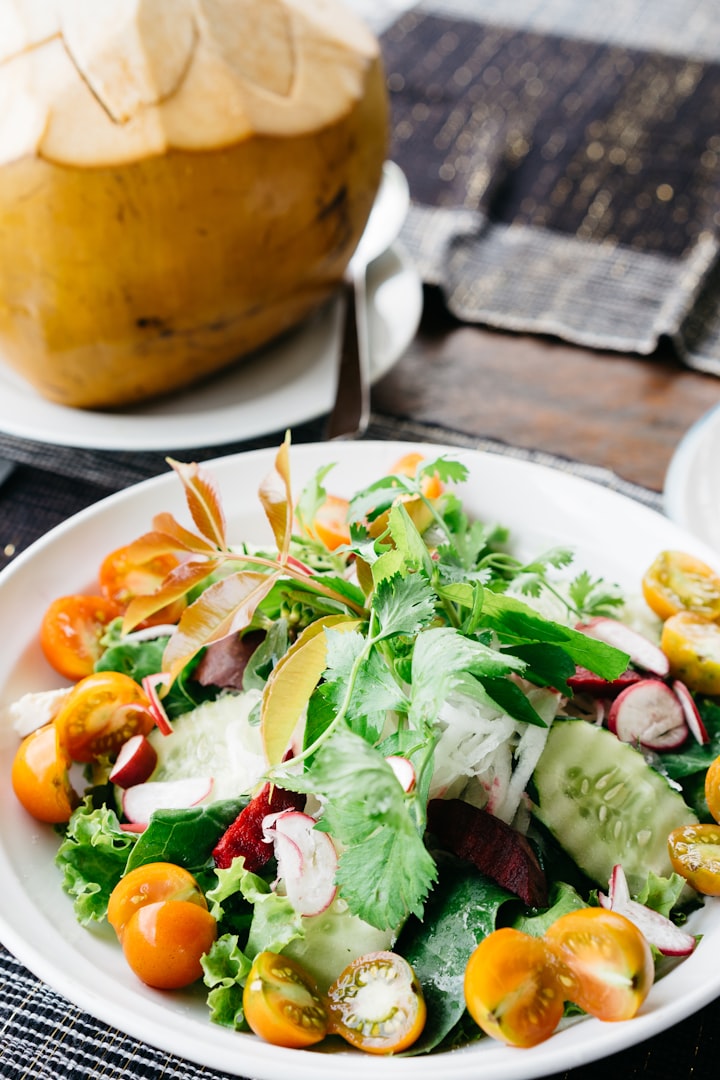The Ultimate Guide to Starting a Keto Diet Plan
Learn how to start a keto diet plan with our comprehensive guide. Gets tips on meal planning, recipes, and more to help you achieve your health and fitness goals!

Starting a new diet plan can be overwhelming, especially when you're not sure what foods to eat and which ones to avoid. The keto diet is no exception. It's a high-fat, low-carbohydrate eating plan that has gained popularity in recent years due to its potential health benefits, such as weight loss, improved blood sugar control, and increased energy. In this article, we'll explore what to eat and what to avoid on a keto diet plan, as well as offer some tips for getting started.
What is a Keto Diet?
The keto diet is a high-fat, moderate-protein, low-carbohydrate eating plan. By drastically reducing your carbohydrate intake and increasing your fat intake, your body enters a metabolic state called ketosis. In ketosis, your body starts using stored fat for energy instead of carbohydrates. This results in rapid weight loss and improved energy levels.
What to Eat on a Keto Diet Plan?
To follow a keto diet plan, you'll need to focus on foods that are high in healthy fats and low in carbohydrates. Here are some examples of keto-friendly foods:
Meat: beef, chicken, pork, lamb, etc.
Fish: salmon, tuna, trout, etc.
Vegetables: leafy greens, broccoli, cauliflower, zucchini, etc.
Nuts and seeds: almonds, walnuts, chia seeds, flaxseeds, etc.
Healthy fats: avocado, olive oil, coconut oil, butter, etc.
Dairy: cheese, heavy cream, sour cream, etc.
Berries: strawberries, raspberries, blueberries, etc.
When planning your meals, aim to have the majority of your calories come from healthy fats (around 70-80%), with moderate protein intake (around 20-25%) and very low carbohydrate intake (less than 5-10%).
Meat and Fish
Meat and fish are excellent sources of protein and healthy fats, making them staples in a keto diet plan. Aim for grass-fed, organic, and wild-caught options when possible to ensure high-quality protein and fat sources.
Vegetables
Non-starchy vegetables like leafy greens, broccoli, cauliflower, and zucchini are low in carbohydrates and high in nutrients. They're an excellent way to add fiber and micronutrients to your diet.
Nuts and Seeds
Nuts and seeds are high in healthy fats and protein, making them an excellent snack option on a keto diet plan. However, they are also high in calories, so it's important to eat them in moderation.
Healthy Fats
Healthy fats like avocado, olive oil, coconut oil, and butter are essential in a keto diet plan. They provide energy and help you feel full and satisfied. Avoid unhealthy fats like trans fats and vegetable oils.
Dairy
Dairy products like cheese, heavy cream, and sour cream are high in fat and low in carbohydrates, making them an excellent addition to a keto diet plan. However, it's important to choose full-fat options and avoid flavored or sweetened dairy products.
Berries
Berries like strawberries, raspberries, and blueberries are low in carbohydrates and high in fiber and antioxidants. They're an excellent way to satisfy your sweet tooth on a keto diet plan.
What to Avoid on a Keto Diet Plan?
To stay in ketosis and reap the benefits of the keto diet, it's important to avoid certain foods that are high in carbohydrates. Here are some foods to avoid on a keto diet plan:
Grains: bread, pasta, rice, etc.
Sugars: candy, soda,fruit juice, etc.
Starchy vegetables: potatoes, sweet potatoes, corn, etc.
Processed foods: chips, crackers, cookies, etc.
High-carb fruits: bananas, grapes, pineapples, etc.
Alcohol: beer, wine, sweetened cocktails, etc.
It's important to note that not all high-fat foods are keto-friendly. Some high-fat foods, like processed meats and fried foods, may be high in unhealthy fats or hidden carbohydrates. Always check the nutrition label and ingredients list before consuming a new food on a keto diet plan.
Tips for Getting Started on a Keto Diet Plan
Starting a new diet plan can be challenging, but these tips can help make the transition to a keto diet plan easier:
Plan your meals in advance: Meal planning can help you stay on track and avoid the temptation to reach for high-carb foods.
Stay hydrated: Drinking plenty of water is important on a keto diet plan to help your body flush out toxins and maintain proper hydration.
Increase your healthy fat intake gradually: If you're not used to eating a high-fat diet, gradually increasing your fat intake can help prevent digestive discomfort.
Consider tracking your macronutrients: Tracking your daily intake of carbohydrates, protein, and fat can help you stay within the recommended macronutrient ratios for a keto diet plan.
Don't be afraid to ask for help: If you're feeling overwhelmed or unsure about how to get started on a keto diet plan, reach out to a healthcare professional or registered dietitian for guidance.
Conclusion
A keto diet plan can be a powerful tool for improving your health and reaching your weight loss goals. By focusing on healthy fats, moderate protein, and low carbohydrates, you can enter a metabolic state of ketosis and start burning stored fat for energy. When planning your meals, focus on nutrient-dense whole foods and avoid processed and high-carb foods. With some planning and dedication, you can successfully transition to a keto diet plan and reap the benefits of this eating style.
Get Your Custom Keto Diet Plan Here!
AFFILATE DISCLOSURE
This post contains affiliate links, which means I may earn a commission if you make a purchase through my links.
About the Creator
Saurav Thapa
Experienced digital marketer seeking new challenges and opportunities to innovate in the industry.





Comments
There are no comments for this story
Be the first to respond and start the conversation.